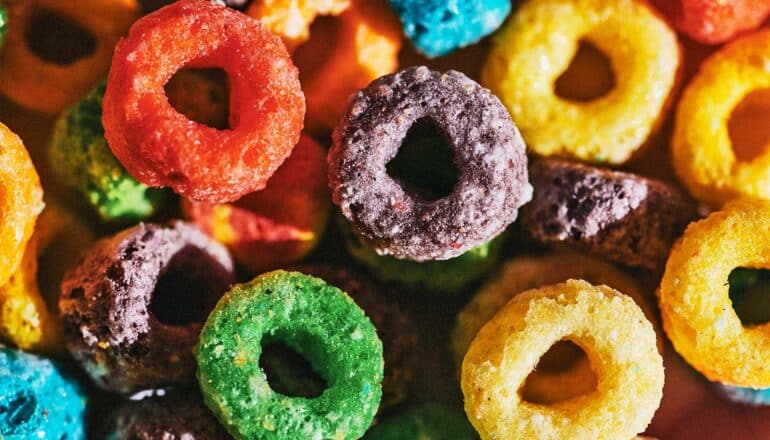What you should know about artificial food dye concerns
- Artificial food dyes have been used for over 150 years to color foods, but recent concerns have led to a shift towards natural coloring.
- Kraft Heinz and General Mills are phasing out artificial dyes in their US foods, while Texas has passed a law requiring food makers to either remove or label artificial dyes starting in 2027.
- Experts like Jamie Alan from Michigan State University’s College of Human Medicine raise concerns about the potential health effects of artificial food dyes.
- The use of artificial food dyes has been linked to various health issues, including hyperactivity and allergic reactions in some individuals.
- As consumers become more aware of the potential risks associated with artificial food dyes, manufacturers are responding by opting for natural coloring alternatives.

An expert has answers for you about artificial food dyes.
We eat with our eyes. You know this if you’ve ever had a favorite color candy. Food manufacturers also know that people are attracted to brightly colored food.
The first artificial food dyes were introduced more than 150 years ago.
Recent news, however, has reported issues with artificial food dyes. Kraft Heinz and General Mills are now phasing out use of artificial dyes in their US foods in favor of natural coloring. And Texas just passed a law requiring food makers to either remove artificial dyes or include warning labels to alert consumers of their use starting in 2027.
Here, Jamie Alan, an associate professor in the pharmacology and toxicology department at Michigan State University’s College of Human Medicine, explains why artificial dyes in food are a concern:
The post What you should know about artificial food dye concerns appeared first on Futurity.
link
Q. What is the main reason why food manufacturers use artificial food dyes?
A. Food manufacturers use artificial food dyes because people are attracted to brightly colored food.
Q. How long have artificial food dyes been used in food products?
A. The first artificial food dyes were introduced more than 150 years ago.
Q. Why is there recent concern about artificial food dyes?
A. Recent news has reported issues with artificial food dyes, leading some companies to phase out their use and others to consider implementing warning labels.
Q. Which companies are phasing out the use of artificial food dyes in their US foods?
A. Kraft Heinz and General Mills are now phasing out the use of artificial dyes in their US foods in favor of natural coloring.
Q. What is happening in Texas regarding artificial food dyes?
A. Texas has passed a law requiring food makers to either remove artificial dyes or include warning labels on their products starting in 2027.
Q. Why are artificial food dyes a concern according to experts?
A. According to Jamie Alan, an associate professor at Michigan State University, artificial food dyes are a concern because of potential health risks associated with them.
Q. What is the role of Jamie Alan in explaining the concerns about artificial food dyes?
A. Jamie Alan is an associate professor in the pharmacology and toxicology department at Michigan State University’s College of Human Medicine.
Q. Why do people eat with their eyes when it comes to food?
A. People eat with their eyes because brightly colored food can be more appealing and attractive.
Q. What is the significance of Texas’ law regarding artificial food dyes?
A. The law requires food makers to either remove artificial dyes or include warning labels on their products, which could lead to changes in the way food manufacturers approach coloring their products.
Q. Why are some companies considering alternative coloring methods?
A. Some companies are considering alternative coloring methods, such as natural coloring, because of growing consumer concerns about the potential health risks associated with artificial food dyes.

